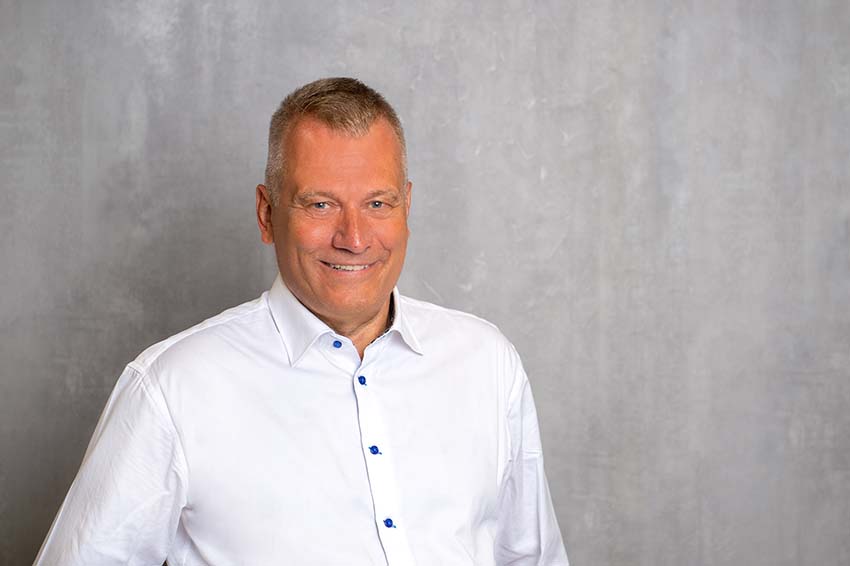Pro Carton, the European Association of Carton and Cartonboard manufacturers, is a non-profit organisation representing over 40 cartonboard mills in 13 different European countries and North America, supplying more than 90% of Europe’s demand, as well as the carton converting industry across Europe.
Interview with Winfried Muehling, Director Marketing & Communication at Pro Carton.
Easy Engineering: Which are the most futuristic products / solutions from your portfolio?
Winfried Muehling: As a not-for-profit association, Pro Carton does not sell products. However, our members are closely working towards producing a sustainable packaging fit for the future. This also includes product categories where we did not have solutions before. Recent market trials with cartonboard and carton packaging includes Carlsberg Groups’ new fibre bottle, Absolut Original Vodka paper bottles, Kraft Heinz paper ketchup bottles. The most prominent launch in the laundry category was Ariel All-in-1 Liquid Pods with a safety locking mechanism. Global brands switching to sustainable packaging materials is not only revolutionary in terms of packaging design, but it offers ecological benefits when life-cycle assessments are considered. Our members have recently been focussed on developing moulded fibre solutions to offer a protective green alternative to current protective solutions on the market for fragile products, to ensure specialised protection at all transport opportunities during the lifecycle of the product.
E.E: Tell us about the company’s long-term goals / prospects?
W.M: Pro Carton’s long-term goal for the future is to make cartonboard and folding cartons the preferred packaging solutions for brands and companies of all scopes- from local to global. To do this, we hope to continue working across industry borders to secure continent-wide use of cartonboard, to create widespread benefits and secure an industry voice in European packaging legislation.
Pro Carton protects the healthy growth of European forests through sustainable forest management practices and resource efficiency. Our recent study carried out by RISE (Research Institutes of Sweden) Bioeconomy and Health Unit for Pro Carton, The Carbon Footprint of Carton Packaging 2023, revealed cartonboard’s improved environmental-friendly benchmark. We found the 24% reduction of the cradle-to-grave carbon footprint to 249kg C02, and the cradle-to-gate carbon impact of 148kg C02 equivalents per tonne of cartons was achieved by improving resource efficiency and switching to renewable energy sources during the production process. Having this data enables our members to compare their own data against industry averages, so far, it shows efforts to improve resource efficiency are paying off. All members manage production processes with a clear focus to continue reducing our carbon footprint. Later in the cartonboard lifecycle, it’s important that we further improve recycling processes and recycling rates. We must secure harmonised separate collection of fibre based materials across Europe in order to meet our ambitious target of 90% recycling rate by 2030.

Another goal of ours is to promote the attractiveness of our industry to young talents. Pro Carton connects with the next generation through our Pro Carton Young Designers Award, an annual packaging design competition for students across Europe to show their creative minds as they design new concepts using cartonboard. As we look towards the future, we will further strengthen our relationships with the upcoming generation to drive innovation.
E.E: Tell us about product innovation and how does it impact the future?
W.M: Product innovation, exemplified by the remarkable properties of cartonboard, holds significant implications for the future. Made from renewable resources, cartonboard fibres can be recycled a minimum of 25 times. With an impressive recycling rate of 82%, these benefits provide cartonboard with a distinctive role in achieving the ambitious targets outlined in the EU Green Deal. Attitudes towards cartons for recycling are changing. We consider each carton for recycling as the valuable foundational material for the next evolution in packaging. All members are working together with brands to minimise the environmental impact of new products, as consumer purchasing behaviour changes depending on the sustainability of packaging. Our members are customising packaging design to ensure product protection during transport, attractive shelf design and functionality for the user while ensuring maximum sustainability.
E.E: What’s moving your company forward?
W.M: We are actively contributing to reducing our carbon footprint through sustainable forest management, playing our part to mitigate the adverse effects of climate change. Our commitment to the environment extends to reducing emissions and optimising resource efficiency during production processes. Continuously improving the recyclability of cartonboard is a priority to ensure cartonboard one day has a net zero impact on the environment. Our innovative approach allowing for product protection and extending the shelf life of products, while maintaining focus on minimising environmental impact, is driving Pro Carton and its members towards a more sustainable future.
E.E: How do employees shape your company’s future?
W.M: Our employees are the key ingredient to drive Pro Carton’s future. Our industry is shaped by the people who are part of it, hence why recruiting new talents and young minds is very important to provide a fresh perspective and lead innovation. We also see that many of our members have employees who stay within their companies for over 30 years or for their entire careers. It is our job to demonstrate that a career in packaging allows for personal development, while consumer demands and increasing regulations cause for updated technologies and new ways of working to keep the industry moving towards closing the loop on a circular economy.
E.E: How does the digital transformation affect your products / business?
W.M: Digital transformation has significantly impacted our members’ products and business operations in a multitude of ways. The industry has embraced the automation of production processes, leading to increased efficiency and precision in manufacturing. Through using artificial intelligence (AI), we have revolutionised waste sorting, enhancing sustainability efforts and minimising environmental impacts. Our adoption of intelligent packaging technology has introduced transparency into our supply chain, allowing consumers to trace and verify the origin of products. Moreover, communication with consumers has moved online, enabling wider audience engagement. Combined, it reflects our commitment to enhancing innovation and sustainability in an increasingly digital world.

E.E: Tell us about research and development in your company.
W.M: Research and development (R&D) at Pro Carton, and for our members, is a growing focus. With our entire industry encompassing innovation, our members are spending ever-increasing amounts of revenue on R&D. Only with this dedicated focus has cartonboard been able to reduce CO2 emissions by 24% between 2018 and 2021. Continuing the focus on R&D will continue and widen the use of renewable materials and open the doors for new applications in new product categories. We strongly believe that R&D will lead the way to carbon neutrality for cartonboard, ahead of other packaging substrates.
E.E: Tell us about the company’s future strategies and how will you adapt to the future.
W.M: Pro Carton is continuing to evolve and grow within increasingly strict regulations. Where there are currently gaps in long-term stable frameworks, our members are ready to take on the challenges that the folding carton industry faces and flexibly adapt and support the EU Green Deal. The industry awaits policymakers to provide a stable environment to allow long-term investments which will change processes.
We are proud to say that every square metre of cartonboard produced wholly encompasses a circular economy with well-established cooperation between producers, consumers and recyclers. We ensure everything is in place to offer a carbon-neutral packaging material within European regulations.
E.E: How do you think the future will look like in your field of activity?
W.M: At Pro Carton, we are ready to see the folding carton industry grow through close industry cooperation and the drive from consumer buying habits as packaging sustainability comes to the forefront of their minds.
We are focussing our effort on raising awareness of sustainable packaging materials as a whole and promoting the complementary use of different packaging solutions, which follow the strict design guidelines for recycling.
Using scientific knowledge of packaging impact end to end will show the way towards the best packaging for our environment.
Only with a combined effort and close cooperation between industry borders, will we see notable progress towards our goal of 90% recycling rate by 2030.

